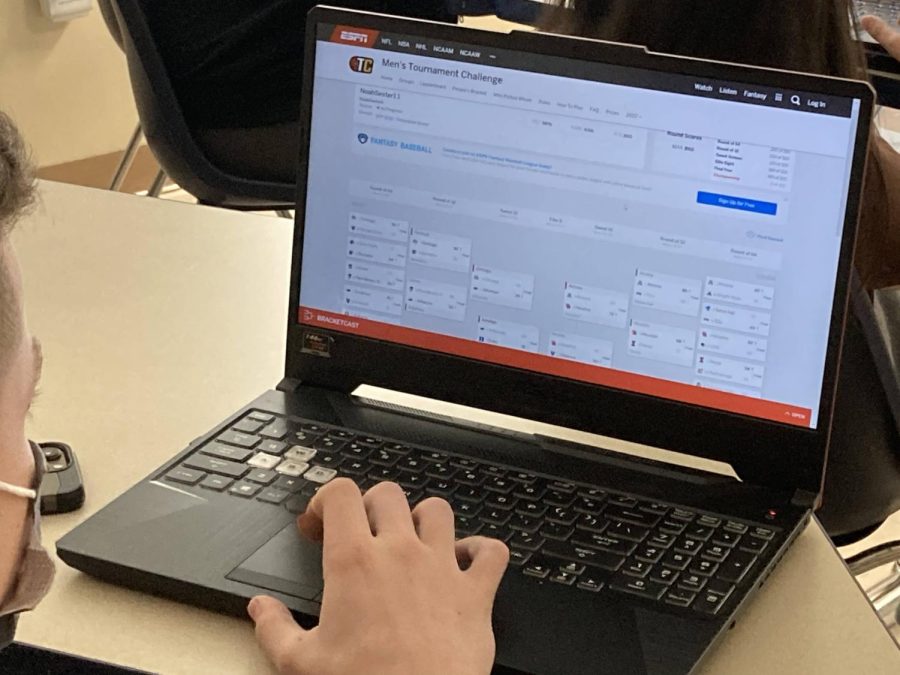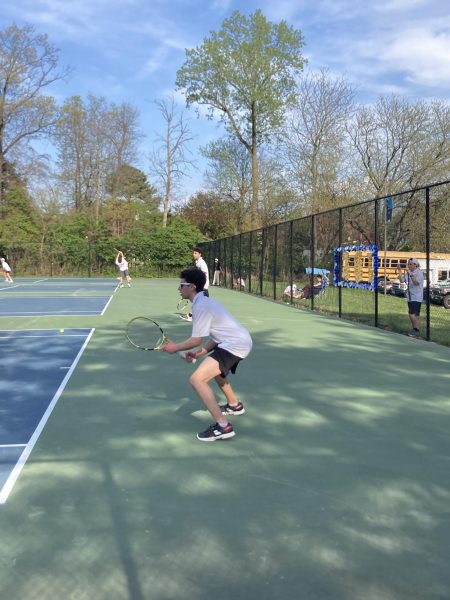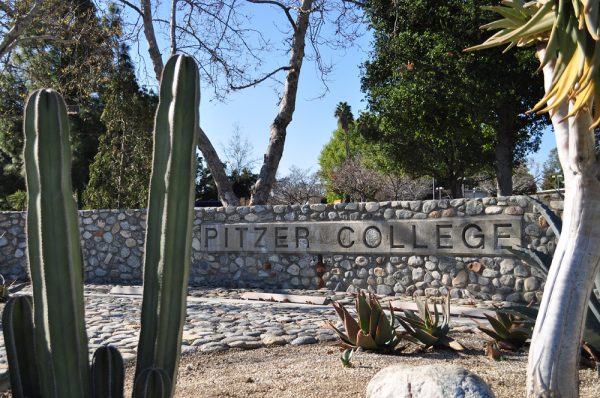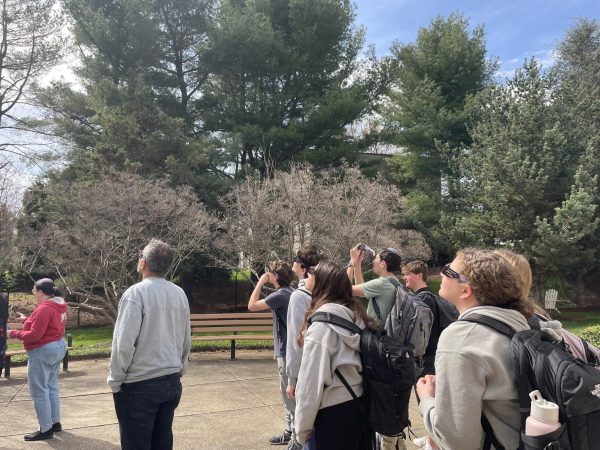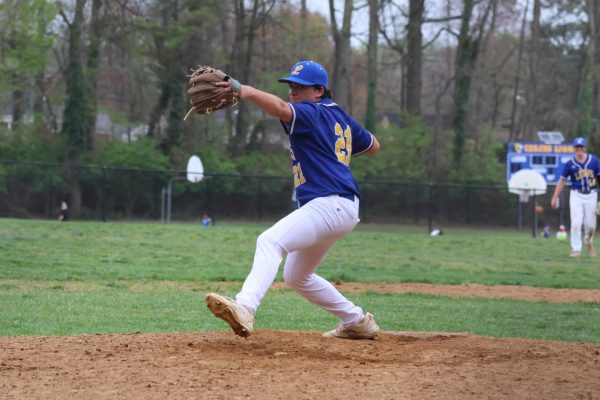The sport of spreads
Sophmore Noah Sexter checks his March Madness Bracket.
April 10, 2022
With March Madness coming to a close this past weekend, students enjoyed competing against their friends to see who would come out on top in their brackets. However, March Madness is not the only sporting event that students love to bet on.
The appeal of betting for many is that they are able to enjoy it with their friends and regardless of the outcome, it can still be a very fun experience. Junior Jonah Bassin finds it fun to compete against his friends, and bets on big sports games or tournaments such as March Madness or the Super Bowl. Sports betting allows him and his friends to be more invested in sports and games that they may not have had an interest in beforehand.
“The fun in betting with my friends is the competitiveness,” Bassin said. “If you bet against each other, you get excited when your team does well and their team does bad.”
Not many high school students bet regularly. They mostly focus on larger events like the Super Bowl or World Series and they only bet a few dollars so that the risk is low.
However fun sports betting may be, Jewish Text teacher Paul Blank believes that all forms of betting are wrong, including March Madness betting. His opinions stem from halakhic principles.
“Gambling is like an addiction and people can get in all kinds of trouble because of it,” Blank said. “From a halakhic point of view, you’re precluded, for instance, from being a witness in Judaism because you’re just not trusted as a human being if you make a living out of not working and just trying to rip other people off.”
According to the International Centre for Youth Gambling Problems and High-Risk Behaviors, in the last year, 60-80% of teenagers have gambled on sports. But 6-8% of those students develop a gambling addiction.
“I am totally against sports betting for all purposes, religious and secular reasons,” Blank said. “It’s even worse for students to do it with each other because betting can become an addiction for people.”
But many students don’t see the annual March Madness bracket competition as a gateway to a gambling addiction. They avoid high-stakes bets and only bet a few dollars with each other for friendly competition. Sophomore Ethan Safra is one such high school student who takes part in “social gambling.”
“I didn’t pay the $10 for the risk of getting the prize,” Safra said. “I paid $10 because I knew that I would enjoy having my bracket in the group and being able to see other people’s brackets and following along [with the tournament].”
Although Safra is against sports betting as a whole, he believes that the fun of March Madness can apply to other sporting events in terms of competing against one’s friends for who will win. However, he believes that the line between March Madness and sports betting is doing it once a year versus doing it on a consistent basis, which could lead to addiction.
“If you’re only doing it for something that happens once or maybe twice a year, that’s really fun to follow along, not just any regular game,” Safra said. “I think March Madness is like that, it’s not just for the prize, it’s more for the process.”


